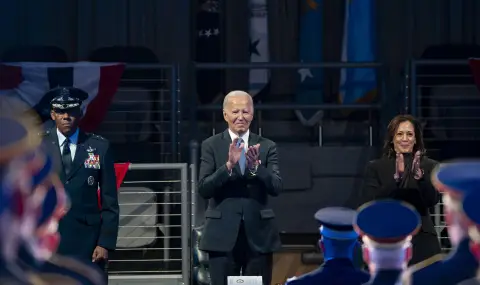US President Joe Biden today announced the commutation of the sentences of nearly 2,500 people convicted of nonviolent drug offenses, the Associated Press reported, quoted by BTA.
Biden used the final days of his term to issue a series of pardons aimed at overturning prison sentences he considers too harsh.
The current actions make Biden the president with a record number of individual pardons and commutations. According to him, these actions reflect a desire for justice and compliance with modern legal standards:
“This is an important step towards righting historical wrongs, correcting disparities in sentencing, and giving people a chance to return to their lives after spending an excessive amount of time in prison,“ Biden said in a statement.
The White House did not release the names of those released, and Biden himself promised to use his remaining time before the inauguration of President-elect Donald Trump to continue the initiative.
At the same time, the president continues to discuss the possibility of broad pardons for certain officials and allies whom his administration believes may be unfairly persecuted by the new government. Analysts say the move, while falling within the president's absolute power to grant pardons, is an innovative and risky use of emergency constitutional powers.
Last month, Biden commuted the sentences of 37 people sentenced to death by federal courts to life in prison - a move that was expected to provoke a backlash from death penalty supporters. Donald Trump, who is about to take office, has promised to reverse the order after taking office.
One of Biden's more controversial decisions was the pardon of his son, Hunter Biden. The president provided protection not only for his tax and gun control violations, but also against potential charges for crimes committed over the past 11 years. This decision was dictated by concerns that the Trump administration could use its power to launch legal attacks against his son.
With these actions, President Biden emphasizes the need for fair reform of the criminal justice system, as well as his personal vision for the future of justice in the United States.
